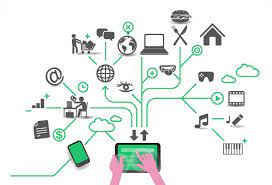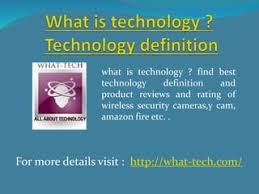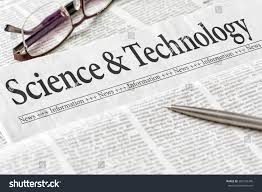Technological Advances: Shaping the Future
In the rapidly evolving landscape of the 21st century, technological advances continue to redefine how we live, work, and interact. From artificial intelligence to renewable energy solutions, these innovations are not only enhancing efficiency but also paving the way for a more sustainable and connected world.
Artificial Intelligence and Machine Learning
Artificial intelligence (AI) and machine learning have made significant strides in recent years. These technologies are transforming industries by automating tasks, analysing large datasets, and providing insights that were previously unimaginable. In healthcare, AI is being used to develop personalised medicine and improve diagnostic accuracy. In finance, it helps detect fraudulent activities and manage risks more effectively.
The Internet of Things (IoT)
The Internet of Things (IoT) refers to the network of interconnected devices that communicate with each other over the internet. This technology is revolutionising everyday life by enabling smart homes, efficient energy management systems, and enhanced industrial operations. IoT devices collect data that can be analysed to improve processes, reduce costs, and increase convenience for users.
Renewable Energy Technologies
As concerns about climate change intensify, renewable energy technologies are becoming increasingly important. Advances in solar panels, wind turbines, and battery storage systems are making clean energy more accessible and affordable. These innovations are crucial in reducing our reliance on fossil fuels and decreasing greenhouse gas emissions.
5G Connectivity
The rollout of 5G networks promises faster internet speeds and more reliable connections. This next generation of wireless technology will enable new applications such as augmented reality (AR), virtual reality (VR), and advanced telemedicine services. By supporting a vast number of connected devices simultaneously, 5G will facilitate smarter cities and more efficient transportation systems.
Blockchain Technology
Blockchain technology is best known for powering cryptocurrencies like Bitcoin; however, its potential extends far beyond digital currencies. Blockchain offers a secure way to record transactions across multiple computers so that records cannot be altered retroactively. This has significant implications for sectors such as supply chain management, where transparency and traceability are paramount.
The Future Outlook
The pace of technological advancement shows no signs of slowing down. As these technologies continue to evolve, they hold immense potential for solving some of the world’s most pressing challenges—from improving healthcare outcomes to combating climate change. However, with great power comes great responsibility; it is essential to address ethical considerations such as data privacy and security as we embrace these innovations.
In conclusion, technological advances are shaping a future filled with possibilities. By harnessing their potential responsibly, we can create a world that is not only more efficient but also more equitable and sustainable for generations to come.
Exploring the Impact of Technological Advances: AI, Renewable Energy, 5G, Blockchain, and Smart Cities
- What are the latest technological advances in the field of artificial intelligence?
- How do technological advances in renewable energy impact sustainability efforts?
- What is the significance of 5G technology and how does it differ from previous generations of wireless networks?
- Can blockchain technology revolutionise industries beyond cryptocurrencies?
- How are technological advances like IoT shaping the concept of smart cities?
What are the latest technological advances in the field of artificial intelligence?
Recent technological advances in the field of artificial intelligence (AI) have been remarkable, with significant progress across various domains. One of the most notable developments is the enhancement of natural language processing (NLP) models, which have become increasingly sophisticated in understanding and generating human language. These advancements are evident in AI systems capable of engaging in more natural and coherent conversations, powering virtual assistants and chatbots with improved contextual understanding. Additionally, AI-driven computer vision technologies are advancing rapidly, enabling machines to interpret and analyse visual data with greater accuracy. This progress is being utilised in areas such as autonomous vehicles and medical imaging diagnostics. Furthermore, reinforcement learning techniques have seen substantial breakthroughs, allowing AI systems to learn complex tasks through trial and error more efficiently than ever before. These innovations collectively demonstrate the transformative potential of AI across industries, from healthcare to finance and beyond.
How do technological advances in renewable energy impact sustainability efforts?
Technological advances in renewable energy play a pivotal role in driving sustainability efforts forward. By harnessing sources such as solar, wind, and hydroelectric power more efficiently and cost-effectively, these innovations help reduce our dependence on fossil fuels and mitigate the environmental impact of energy production. Improved renewable energy technologies enable us to generate clean electricity on a larger scale, making it more accessible and affordable for businesses and households alike. This shift towards sustainable energy not only contributes to reducing carbon emissions but also promotes long-term environmental conservation and fosters a more resilient and eco-friendly future for generations to come.
What is the significance of 5G technology and how does it differ from previous generations of wireless networks?
The significance of 5G technology lies in its transformative potential to revolutionise connectivity and enable a wide range of innovative applications. Unlike previous generations of wireless networks, 5G offers significantly faster data speeds, lower latency, and increased network capacity. This means that users can enjoy seamless streaming, real-time gaming, and instant downloads with minimal delays. Additionally, 5G supports a massive number of connected devices simultaneously, paving the way for the Internet of Things (IoT) to flourish and for smart cities to become a reality. The deployment of 5G is set to usher in a new era of connectivity that empowers industries, enhances user experiences, and drives technological advancements across various sectors.
Can blockchain technology revolutionise industries beyond cryptocurrencies?
The question of whether blockchain technology can revolutionise industries beyond cryptocurrencies is a topic of growing interest and importance in the technological landscape. While blockchain initially gained prominence as the underlying technology for digital currencies like Bitcoin, its potential applications extend far beyond the realm of finance. The decentralised and transparent nature of blockchain offers opportunities for secure data management, supply chain traceability, smart contracts, and more. Industries such as healthcare, logistics, energy, and government services are exploring how blockchain can streamline operations, enhance security, and foster trust among stakeholders. As organisations continue to innovate and integrate blockchain solutions into their processes, the transformative impact of this technology on diverse sectors becomes increasingly evident.
How are technological advances like IoT shaping the concept of smart cities?
Technological advances such as the Internet of Things (IoT) are playing a pivotal role in reshaping the concept of smart cities. By integrating IoT devices and sensors into urban infrastructure, cities can collect real-time data on various aspects such as traffic flow, energy consumption, waste management, and public safety. This data-driven approach enables city planners to make informed decisions to improve efficiency, sustainability, and quality of life for residents. Smart cities leverage IoT technology to enhance services like smart transportation systems, intelligent energy grids, connected healthcare solutions, and responsive public services. As a result, urban environments are becoming more interconnected, efficient, and sustainable through the transformative power of IoT-enabled technological advancements.



